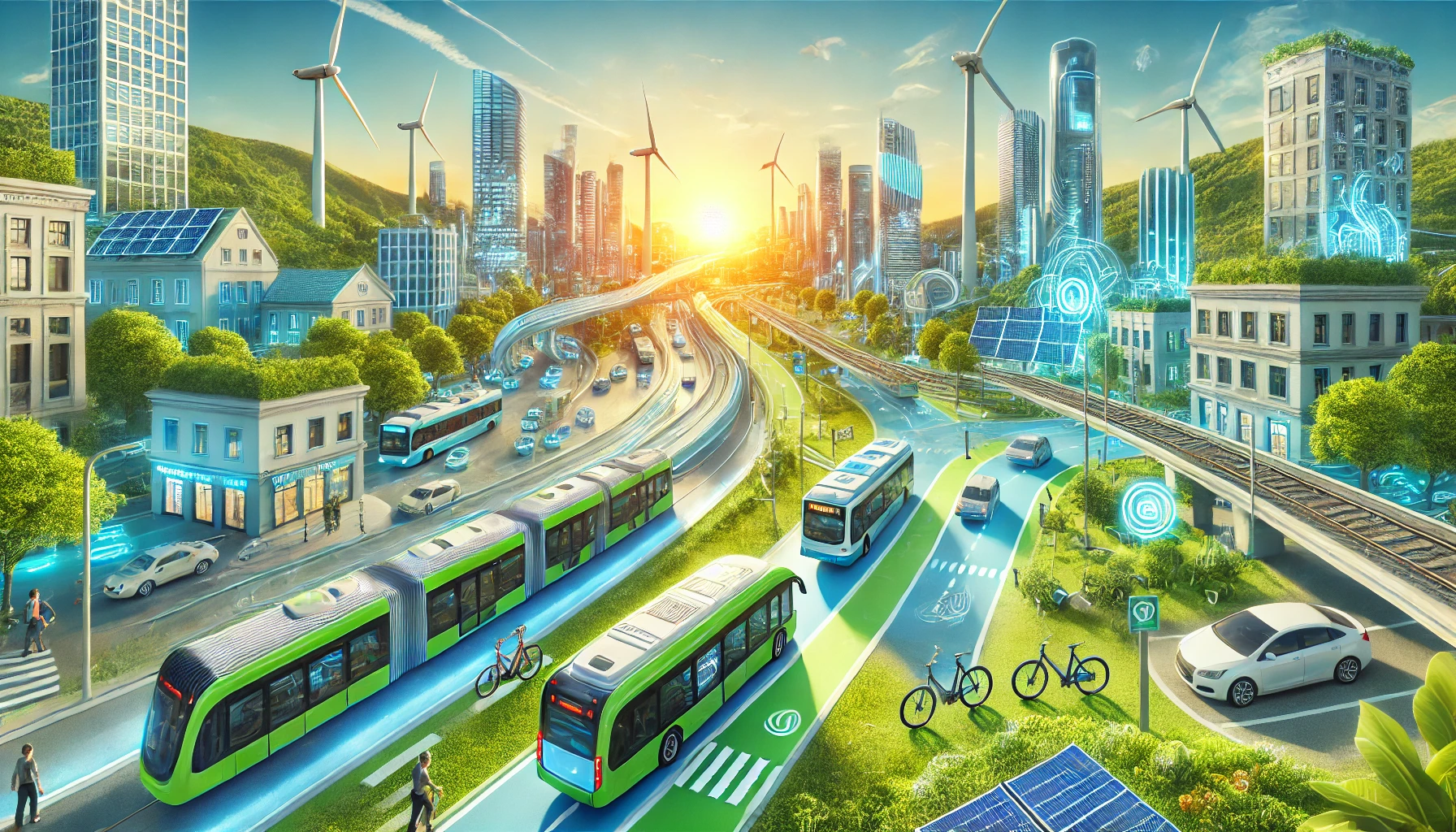Green Transport Strategies to Transform the Western Balkans for a Sustainable Future
The World Bank's report highlights the urgent need for green, inclusive, and resilient transport strategies in the Western Balkans to address rising emissions, climate vulnerabilities, and urban challenges while enhancing regional connectivity and economic growth. Key recommendations include stricter vehicle emissions regulations, e-mobility adoption, sustainable infrastructure upgrades, and improved urban mobility planning.

The World Bank's recent report emphasizes the critical need for green, resilient, and inclusive transport strategies across the six Western Balkan countries—Albania, Bosnia and Herzegovina, Kosovo, Montenegro, North Macedonia, and Serbia (WB6). Conducted by the World Bank Group, the study underscores the transport sector’s pivotal role in balancing economic growth, regional connectivity, and climate action. With motorization increasing and climate vulnerabilities escalating, the region faces a defining moment in transforming its transport systems to achieve sustainability, reduce emissions, and enhance resilience. As a major contributor to greenhouse gas (GHG) emissions and urban air pollution, the transport sector also holds immense potential to drive economic growth and environmental progress.
Tackling Emissions with a Focus on E-Mobility
The report identifies vehicle emissions as one of the most pressing challenges for WB6, as the widespread use of secondhand imported vehicles that do not meet modern emissions standards has significantly worsened air quality in urban areas. To combat this, the World Bank recommends implementing stricter regulations on vehicle imports and promoting a robust shift toward e-mobility. Key measures include targeted tax reforms to encourage the adoption of electric vehicles (EVs) and the establishment of extensive charging infrastructure to support this transition. By doing so, the region can reduce the environmental footprint of road transport, which remains the largest contributor to emissions. Complementary strategies such as fuel efficiency standards, vehicle inspection systems, and cleaner public transportation options are also proposed to ensure a comprehensive approach to emissions management.
Modernizing Regional Infrastructure for Trade and Sustainability
Beyond urban centers, the report stresses the importance of regional integration through sustainable and efficient transport networks. As trade within the Western Balkans and with the European Union grows, the region’s infrastructure must meet higher standards of efficiency and environmental sustainability. The Trans-European Transport Network (TEN-T) is highlighted as a critical framework for aligning WB6’s transport systems with EU guidelines. Investments in modernizing roads, railways, and inland waterways are essential to enhancing logistical efficiency, reducing GHG emissions, and improving climate resilience. For example, prioritizing rail and waterway freight over road transport could significantly lower the carbon intensity of trade. Additionally, digital technologies, such as intelligent transport systems, are recommended to optimize logistics, streamline traffic management, and minimize delays.
Transforming Cities with Inclusive and Green Mobility
Urban mobility is another focal point, as cities across WB6 struggle with challenges like traffic congestion, urban sprawl, and air pollution. The report advocates for integrated land-use and transport planning to address these issues, emphasizing compact urban development that reduces reliance on private cars. Public transport infrastructure, including modernized bus systems and urban rail networks, is identified as a key solution to improving accessibility and reducing congestion. Furthermore, active mobility options, such as cycling and walking, are highlighted as critical components of a greener urban future. Policies such as low-emission zones, pedestrian-only areas, and bike-sharing programs are proposed to encourage healthier and more environmentally friendly travel patterns. These initiatives aim to create sustainable cities that are both livable and equitable, providing accessible transportation options for all residents, regardless of income level.
Building Capacity and Financing Green Infrastructure
The report also stresses the need for an enabling environment to implement green transport strategies effectively. Strengthening institutional capacity, fostering intergovernmental collaboration, and adopting innovative financing mechanisms are crucial for success. Capacity building within transport ministries and local governments is necessary to develop and enforce effective policies. Moreover, public-private partnerships and international financial assistance can help overcome budgetary constraints and accelerate infrastructure development. Aligning transport initiatives with broader goals, such as economic inclusion and climate resilience, ensures that investments yield maximum benefits for both people and the environment. The report highlights the importance of a coordinated approach, where stakeholders at all levels work together to achieve sustainable outcomes.
A Roadmap for a Green, Resilient Future
The World Bank envisions a transformative shift in the WB6 transport sector, aligning it with global climate goals while addressing local challenges. By embracing low-carbon technologies, modernizing infrastructure, and fostering inclusive mobility solutions, the region can significantly reduce its environmental impact and enhance economic competitiveness. The recommendations laid out in the report provide a comprehensive roadmap for achieving this vision, emphasizing the need for collaboration between governments, private stakeholders, and international partners. Sustainable transport is positioned as a cornerstone for addressing climate change, improving air quality, and driving economic growth, making the Western Balkans a potential model for other regions facing similar challenges. Through coordinated and determined action, WB6 countries have the opportunity to build a future that is greener, more resilient, and more connected, ensuring long-term prosperity for their people and the planet. At this pivotal moment, the report offers hope and actionable strategies to transform challenges into opportunities for progress.
- FIRST PUBLISHED IN:
- Devdiscourse










